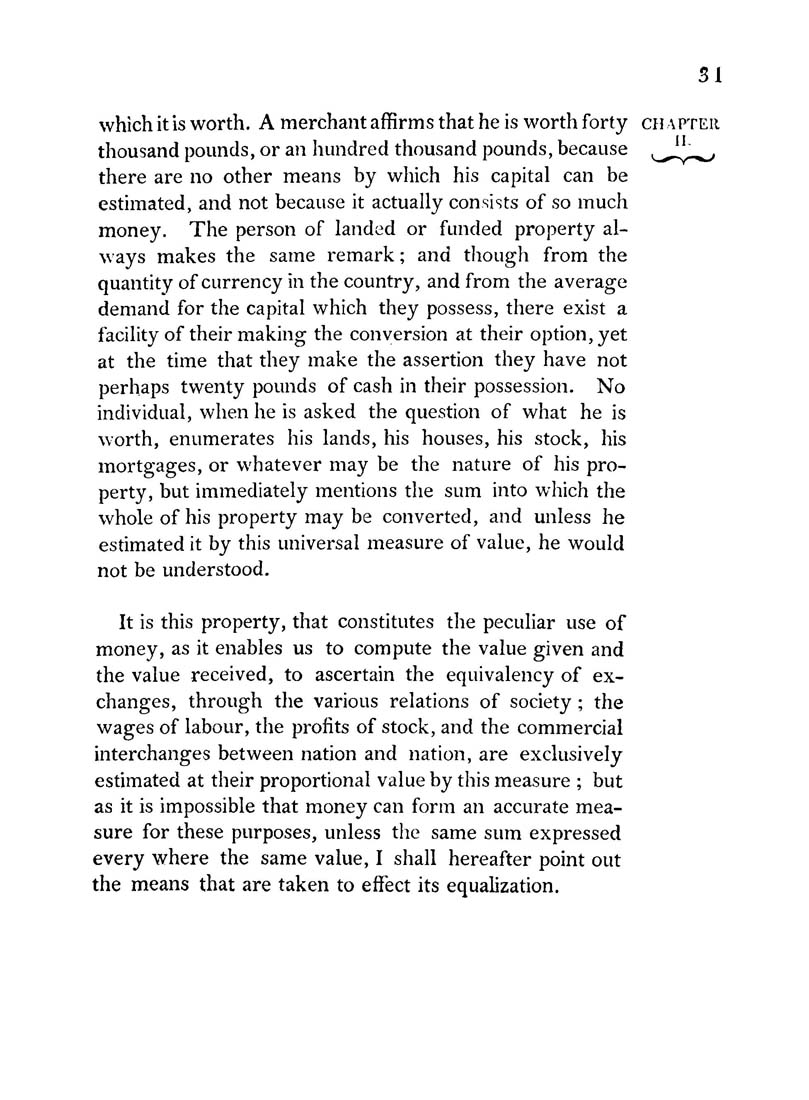51
which it is worth. A merchant affirms that he is worth forty cu apter
thousand pounds, or an hundred thousand pounds, because
there are no other means by which his capital can be
estimated, and not because it actually consists of so much
money. The person of landed or funded property al¬
ways makes the same remark; and though from the
quantity of currency in the country, and from the average
demand for the capital which they possess, there exist a
facility of their making the conversion at their option, yet
at the time that they make the assertion they have not
perhaps twenty pounds of cash in their possession. No
individual, when he is asked the question of what he is
worth, enumerates his lands, his houses, his stock, his
mortgages, or whatever may be the nature of his pro¬
perty, but immediately mentions the sum into which the
whole of his property may be converted, and unless he
estimated it by this universal measure of value, he would
not be understood.
It is this property, that constitutes the peculiar use of
money, as it enables us to compute the value given and
the value received, to ascertain the equivalency of ex¬
changes, through the various relations of society ; the
wages of labour, the profits of stock, and the commercial
interchanges between nation and nation, are exclusively
estimated at their proportional value by this measure ; but
as it is impossible that money can form an accurate mea¬
sure for these purposes, unless the same sum expressed
every where the same value, I shall hereafter point out
the means that are taken to effect its equalization.
|








